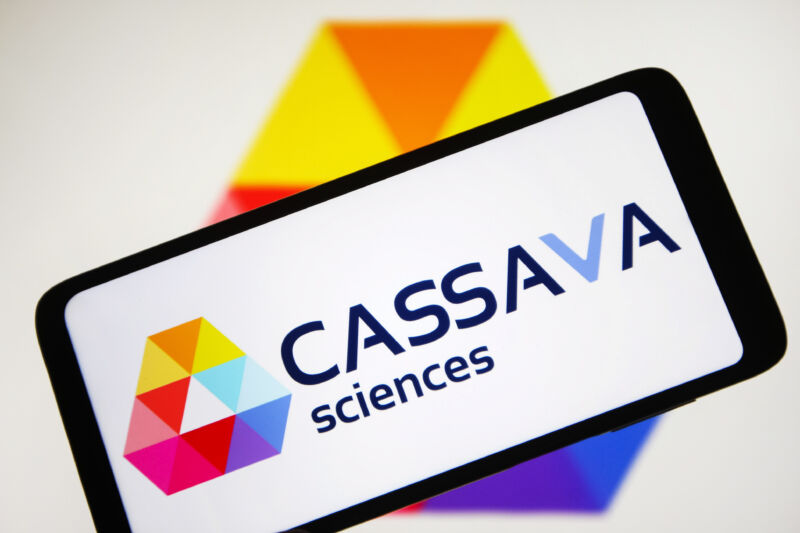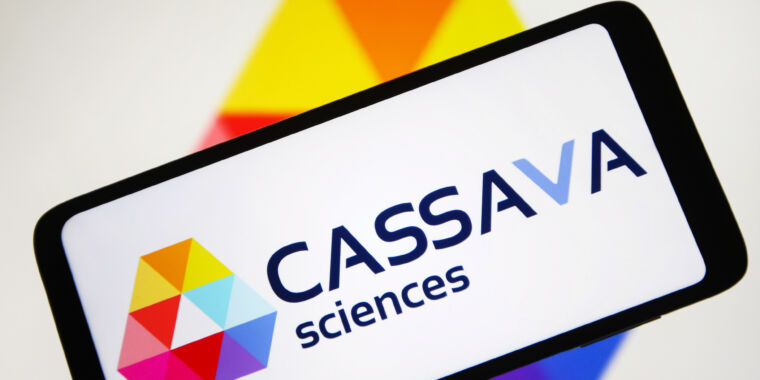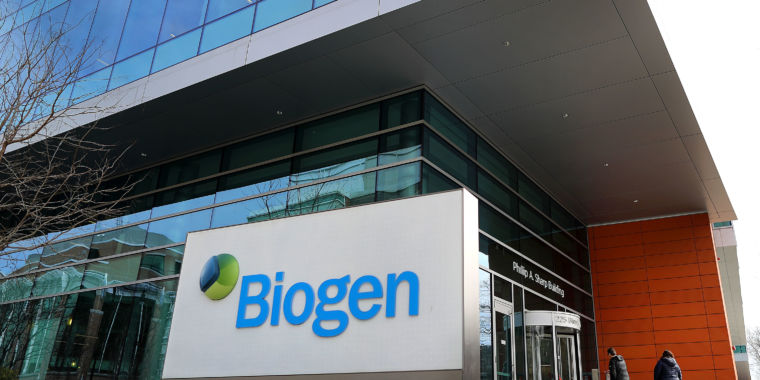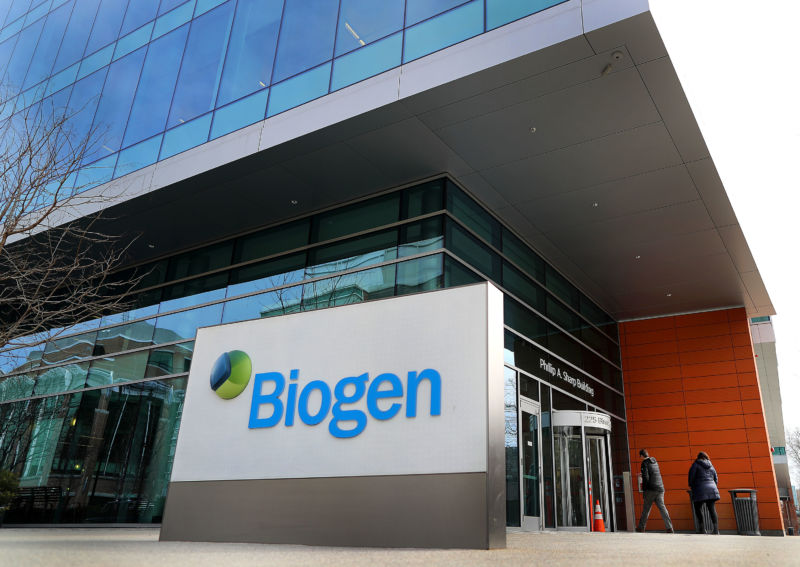Alzheimer’s scientist indicted for allegedly falsifying data in $16M scheme
Funding Scheme —
The work underpinned an Alzheimer’s drug by Cassava, now in a Phase III trial.

A federal grand jury has indicted an embattled Alzheimer’s researcher for allegedly falsifying data to fraudulently obtain $16 million in federal research funding from the National Institutes of Health for the development of a controversial Alzheimer’s drug and diagnostic test.
Hoau-Yan Wang, 67, a medical professor at the City University of New York, was a paid collaborator with the Austin, Texas-based pharmaceutical company Cassava Sciences. Wang’s research and publications provided scientific underpinnings for Cassava’s Alzheimer’s treatment, Simufilam, which is now in Phase III trials.
Simufilam is a small-molecule drug that Cassava claims can restore the structure and function of a scaffolding protein in the brain of people with Alzheimer’s, leading to slowed cognitive decline. But outside researchers have long expressed doubts and concerns about the research.
In 2023, Science magazine obtained a 50-page report from an internal investigation at CUNY that looked into 31 misconduct allegations made against Wang in 2021. According to the report, the investigating committee “found evidence highly suggestive of deliberate scientific misconduct by Wang for 14 of the 31 allegations,” the report states. The allegations largely centered around doctored and fabricated images from Western blotting, an analytical technique used to separate and detect proteins. However, the committee couldn’t conclusively prove the images were falsified “due to the failure of Dr. Wang to provide underlying, original data or research records and the low quality of the published images that had to be examined in their place.”
In all, the investigation “revealed long-standing and egregious misconduct in data management and record keeping by Dr. Wang,” and concluded that “the integrity of Dr. Wang’s work remains highly questionable.” The committee also concluded that Cassava’s lead scientist on its Alzheimer’s disease program, Lindsay Burns, who was a frequent co-author with Wang, also likely bears some responsibility for the misconduct.
In March 2022, five of Wang’s articles published in the journal PLOS One were retracted over integrity concerns with images in the papers. Other papers by Wang have also been retracted or had statements of concern attached to them. Further, in September 2022, the Food and Drug Administration conducted an inspection of the analytical work and techniques used by Wang to analyze blood and cerebrospinal fluid from patients in a simufilam trial. The investigation found a slew of egregious problems, which were laid out in a “damning” report obtained by Science.
In the indictment last week, federal authorities were explicit about the allegations, claiming that Wang falsified the results of his scientific research to NIH “by, among other things, manipulating data and images of Western blots to artificially add bands [which represent proteins], subtract bands, and change their relative thickness and/or darkness, and then drawing conclusions” based on those false results.
Wang is charged with one count of major fraud against the United States, two counts of wire fraud, and one count of false statements. If convicted, he faces a maximum penalty of 10 years in prison for the major fraud charge, 20 years in prison for each count of wire fraud, and five years in prison for the count of false statements, the Department of Justice said in an announcement.
In a statement posted to its website, Cassava acknowledged Wang’s indictment, calling him a “former” scientific adviser. The company also said that the grants central to the indictment were “related to the early development phases of the Company’s drug candidate and diagnostic test and how these were intended to work.” However, Cassava said that Wang “had no involvement in the Company’s Phase 3 clinical trials of simufilam.”
Those ongoing trials, which some have called to be halted, are estimated to include over 1,800 patients across several countries.
Alzheimer’s scientist indicted for allegedly falsifying data in $16M scheme Read More »


